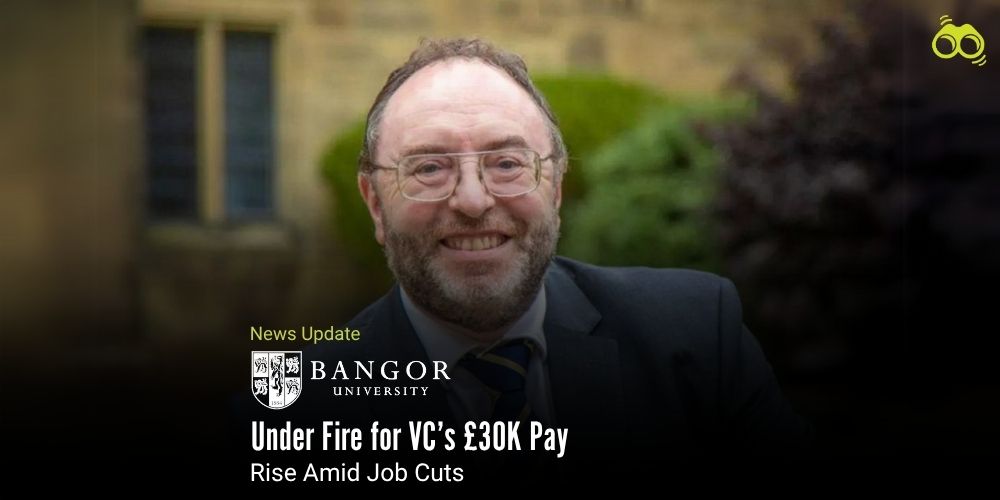Bangor University Defends Leadership Pay Benchmarking Amid Workforce Reductions
Trade Union Condemns Executive Pay Increase as Bangor University Plans Redundancies
Bangor University’s decision to award its Vice-Chancellor, Professor Edmund Burke, a 13% pay increase has drawn criticism from a trade union, particularly as the institution faces impending job cuts. According to its 2023/24 annual report, Professor Burke’s salary increased by over £30,000, bringing his total remuneration to £273,000, compared to £222,000 for 11 months’ work the previous year. The timing of this salary adjustment has sparked concerns among staff and union representatives, who argue that financial resources should have been prioritised to safeguard jobs rather than increase executive pay. As Bangor University navigates financial challenges, the decision has intensified discussions surrounding leadership accountability and institutional spending.
Dyfrig Jones, Vice President of the University and College Union (UCU) and a senior lecturer, described the pay rise as "shocking and disappointing," particularly for staff facing ongoing difficulties. He suggested that the funds allocated for the salary increase could have been used to save jobs and expressed that the union would welcome any decision by the Vice-Chancellor to return part of the raise. In response, the university defended its decision, stating that the salary reflected the full responsibilities of the role and was benchmarked against comparable institutions.
Meanwhile, Marian Wyn Jones, Chair of the University Council, acknowledged the financial difficulties facing Bangor University, citing factors such as stagnant tuition fees, inflation, and visa policy changes. Earlier in the year, the university had announced plans to cut 200 jobs, although Vice-Chancellor Professor Edmund Burke later reported progress in cost-saving efforts, which allowed the number of planned redundancies to be reduced to 78. The UCU union further criticised the decision to financially reward senior staff amid these financial challenges, pointing out that the number of senior employees had increased from 18 to 26 within a year. Dyfrig Jones argued that funds used for executive pay could have been redirected to safeguard at-risk positions and urged the university to consider reducing high-salary roles to protect lower-paid, essential employees.
In response to these concerns, Bangor University clarified that salary increases were the result of new appointments or promotions to leadership roles, with pay benchmarked against national standards. The university reaffirmed its commitment to transparency and accountability, stating that the Remuneration Committee was responsible for determining salaries for the Vice-Chancellor and the Executive Board. The institution emphasised that its leadership team remained focused on using financial resources responsibly to support its academic mission and ensure long-term stability. Additionally, a university spokesperson clarified that the Vice-Chancellor had not received a pay rise in the current year, seeking to further address concerns surrounding executive compensation. This ongoing debate highlights broader concerns about financial prioritisation and leadership decisions, particularly in times of economic difficulty.
Editor’s Note
Bangor University’s decision to give its Vice-Chancellor a large pay rise during a time of financial difficulty raises serious concerns about leadership choices and fairness. While the university says the salary was based on industry standards, this explanation may not comfort staff who are facing job losses and uncertainty. It’s worrying to see high pay for senior staff while many important roles are being cut. Universities should focus on keeping their staff and using funds wisely to maintain the quality of education and support for students. At a time when many UK universities are struggling with limited funding, this case raises a bigger question: should university leaders get big pay increases while others risk losing their jobs?
According to Skoobuzz, although Bangor University has defended its decision, staff and students need a better understanding of how these choices support the university’s future. This situation shows why it’s important to closely examine how universities manage their money and make sure resources are shared fairly.














0 Comments (Please Login To Continue)